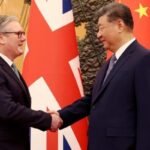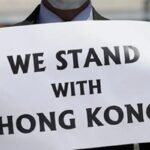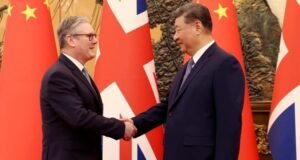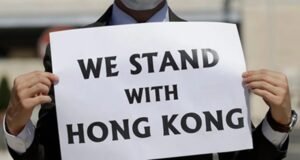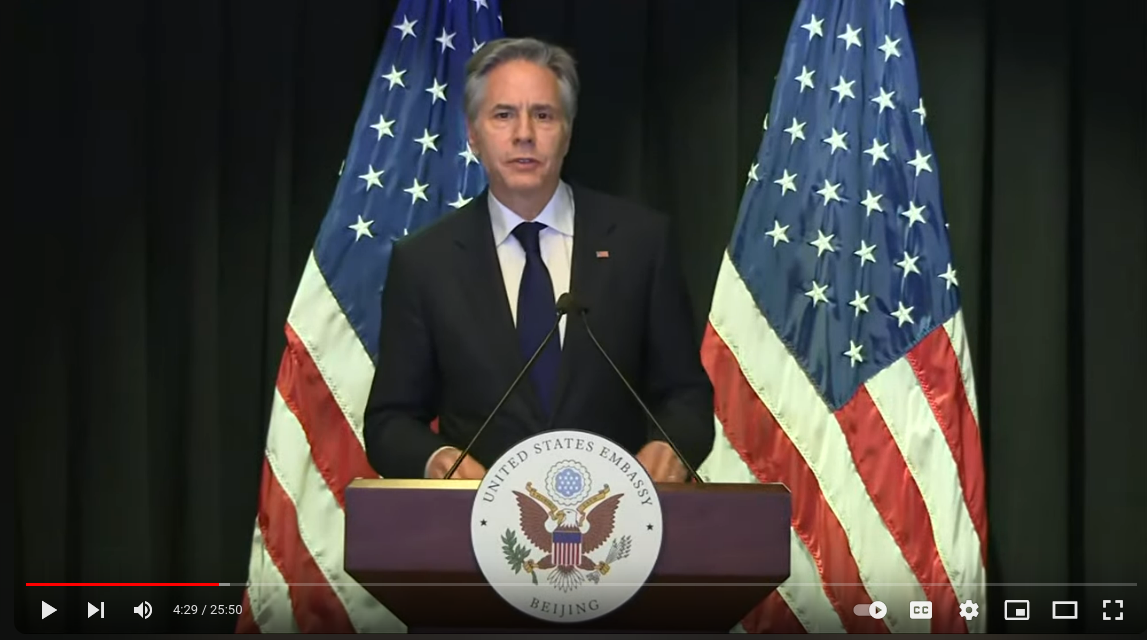
Screenshot from YouTube. "Secretary blinken holds press conference after meeting with Chinese officials". Fox News. April 26, 2024. https://www.youtube.com/watch?v=zDMS2Gcx5o4
U.S. Secretary of State Antony Blinken has visited Beijing for a diplomatic round. He summarized the results of his dialogue with Chinese Communist leaders during a press conference from Beijing today. Video embedded below.
Monkton’s takeaway is that there were no real concrete results, despite the positive spin Blinken gave his trip. It just amounts to more talking with more promises of future talking. At least during this press conference, Blinken makes no actual demands on the Chinese Communists to completely stop some or all of their bad behavior by delineating specific responses that will happen if the bad behavior continues.
Importantly, Monkton notes that Blinken is still speaking as though China is not an outright enemy of America and the West, but instead a competitor that can be a partner for cooperation. He even offered specific areas in which cooperation should be enhanced.
The two biggest policy issues regarding China that in the American political consciousness at the moment are TikTok and fentanyl.
Blinken said there was no discussion of TikTok, even though President Biden just signed the move towards a ban on TikTok into law. The Chinese Communists retaliated by banning WhatsApp and Threads. Just too hot of an issue?
On fentanyl, Blinken said that there was an agreement for cooperation, that the Chinese government would crack down on suppliers, and give American law enforcement information that could be used to track fentanyl and catch smugglers. Of course, the quality of this cooperation will be hard to measure. China could certainly shut down a number of suppliers (at least on paper) and sell out some of its less favored traffickers, giving the illusion of cooperation, while the main effort to poison Americans continues unabated.
A better rule would be to make the Chinese government responsible for any of its fentanyl that results in American deaths. For every death, tariffs could be hiked a particular amount for a so much time. Or other elements of cooperation could be reduced or canceled.
A good example of an area in which such accountability could be exercised is that the US could cancel a certain number of student visas for every fentanyl death.
On the issue of universities and education, at the press conference Blinken proposed that we should have more research collaboration and more of each country’s students studying at the other’s universities. Blinken also proposed more research collaboration. Monkton thinks that another lesson not learned is that rather than China being liberalized by the students returning from America, they instead bring back technical and scientific know-how that serves to strengthen the Communist Party monster.
AI is another area Blinken wants to have more shared research and dialogue. Other than providing an opportunity to play a spy game around the forum participants, with each country trying to assess the real state of the opponent’s status of development, there isn’t much point to an AI dialogue. Any notion of self-regulation around AI capacity (as though AI were like a nuclear weapons supply, with each weapon enumerable and observable) is farcical, even within the United States by itself. And there’s no reason to believe the Chinese Communists on any assurance or agreement they might commit to.
Finally, Monkton took issue with the well-wishing for China’s economy, saying the US didn’t want to contain China, but that “we want China’s economy to grow.”
Actually, we shouldn’t want China’s economy to grow while the Chinese Communist Party is still at the helm. Economic power is geo-political leverage as well as the primary input for potential military capacity. And we know how China has used its gains from trade to build up its military might and to expand its political power across the globe.
If we don’t want the spread of Chinese Communist power to take over one country after another, containment has to be the policy.
And that means we should not help China grow, nor expand cooperation, but instead exert our own power to demand behavioral changes.
